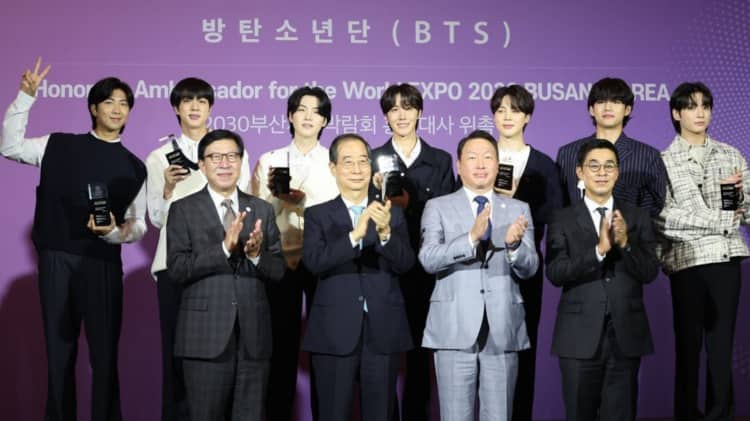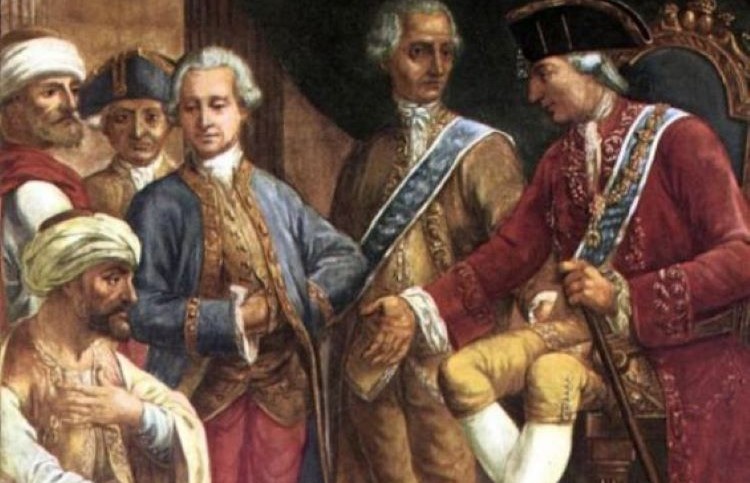Alberto Rubio
Busan, in South Korea, and Riyadh, the Saudi capital, are emerging as the cities that will compete in the final stretch for the organisation of Expo 2030, which will succeed the one to be held in Osaka (Japan) in 2025. But do not forget Rome.
Only three of the five cities that originally submitted bids for Expo 2030 – Moscow (Russia) and Odessa (Ukraine) withdrew their bids due to the war – remain, and of these, two are emerging as ‘finalists’.
Although Rome has not withdrawn its bid, the umpteenth government crisis in Italy may significantly reduce the Eternal City’s chances against two emerging cities that are very attractive to international investors.
However, the Italian Embassy in Spain has told The Diplomat that it maintains its candidacy, which will revolve around five axes: Evolution and regeneration; Diversity and inclusion; Sustainability and circularity; Digital first and ZED (Zero Emission Digital); Decentralisation and connection.
In the information sent to this newspaper, the Italian legation considers that the most outstanding aspects of its candidacy – presented under the slogan “The horizontal city: urban regeneration and civil society” – focus on Rome’s international vocation and its quality as a tourist destination; the synergies that can be derived from the Milan Triennial; and the added value of the Expo for the European continent, as well as the regeneration of urban structures through the active participation of the third sector.
The Embassy also recalls that Italy is among the first signatories of the Paris Convention of 1928, which established the BIE, and has already organised two Universal Expositions (both in Milan, 1906 and 2015) and five specialised Expositions (Rome – 1953; Naples – 1954; Turin – 1955 and 1961; and Genoa – 1992).
For their part, the authorities in Busan – Korea’s second most populous city – have taken the lead in promoting their proposal. Earlier this month, on 7 July, the first meeting of the Busan Expo Strategy Committee was held. At this meeting, those in charge approved the appointment of the Korean K-pop group BTS as ambassador for their candidacy, taking advantage of the worldwide fame achieved by this band, whose members – two of whom were born in Busan – even spoke at the United Nations General Assembly in 2018.
In fact, the organisers stress that the ‘BTS effect’ has already transcended the world and social networks have been filled with favourable comments from all over the world, where K-pop is advancing by leaps and bounds.
Plans approved by the Korean authorities include holding a global BTS concert in Busan itself in October, which they say is sure to draw global attention to the historic Korean port city, which is being presented with the slogan “Transforming our world, sailing towards a better future”.
That slogan, Busan officials say, is the focus of their Expo bid: solving the challenges facing the world today, such as climate change and the digital transition. “The world needs formidable changes, but not impossible ones,” says the co-chair of the Strategy Committee, Chey Tae-won, who is committed to sharing experiences and resources: “Global challenges, such as the climate crisis, cannot be solved by a single country. Only with the cooperation of governments, businesses and societies in every corner of the world can we make a difference.
Meanwhile, Riyadh’s bid, whose slogan is “Era of change: leading the world to a bright tomorrow”, has received far less media coverage, although the economic power of the Saudi government bodes well for a tough contest.
The desert kingdom plans to allocate real fortunes to mega-projects to improve its image in the eyes of the rest of the world and diversify its economy, according to Prince Mohammed Bin Salman’s ‘Vision 2030’. However, many analysts question whether this is enough to successfully organise a global event such as a World Expo while, despite the openness of recent years, there is still a long way to go on issues such as freedom of expression.
The election of the host city will take place at the end of 2023, but the campaign has already begun. By 7 September this year, candidate cities must submit a full dossier with details of their bid. Thereafter, the International Exhibitions Bureau (BIE) will send missions to each city to check the feasibility of each project. The decision will be taken in November 2023 in a vote involving all BIE member countries under the ‘one country, one vote’ rule.







